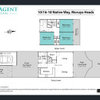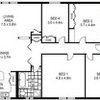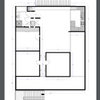What is the best way in Sydney to heat swimming pool?
watchedpoppy
6 years ago
Featured Answer
Sort by:Oldest
Comments (25)
watchedpoppy
5 years agoRelated Discussions
Preparing Your Pool For Summer!
Comments (5)Thanks for this helpful guide! I especially agree when it comes to always getting a professional to drain your pool, especially when you have a vinyl pool liner....See Moreresistance swimming pools
Comments (4)had various outdoor spas including a 5m "portable" saltwater swim spa for many years but as we were hundreds of metres from nearest neighbours it could be used at any time of the day or night without disturbing anyone else...ours was installed directly on the concrete floor of a converted garage so we could open the roller doors for gorgeous bush view and close for heating in cold weather...given the choice i would never have one in the suburbs because the noise restricts times that it could be used but newer models, installed below ground in a lockable enclosed shelter could solve those problems..check with manufacturers and keep in mind that they need proper pool security and more chemicals than a swimming pool to maintain safe water in the smaller volume of constantly heated water and can be easily damaged by rough use but nothing better than a warm swim on a cold night...See MorePlease help us with ideas for our red brick farmhouse near Sydney
Comments (12)Hi oklouise, thank you also for your excellent ideas. We like the idea of the window seat, but in the first instance we will try removing the existing gable end and exposing the overhanging eaves as you suggested. We saw this sort of thing on some old houses in Orange (NSW) last weekend and really liked it, so it is uncanny that you suggested it. Do you think we could get away with a gable vent to make a bit of a statement, or do you think that might be a bit fussy? Regarding the roof, we are considering Shale Grey as it is light (and therefore will absorb less heat), and it it the Colorbond colour that supposedly most resembles old zincalume. However, we are still trying to work out if this works the best with our brick colour. Again, thank you for your advice !...See MoreSydney Renovation and Housing Market Intell Thanks
Comments (32)This next two months we have so much on here in NZ that we've pushed our Aus business launch to 1 May , but the intention is we will be based at this apartment for about 3 weeks in May , then we'll see . So far we have already done a lot of touristy things , done the ferries several times , the trains , etc . We've bought a car too -- no idea what will happen to that if my cousin/aunty start pushing to sell the unit , but at this stage I've paid all these bills , except the kitchen ( my cousin had already paid that ) and I've also transferred them 'a loan' , so it seems likely we'll all have this unit for at least 18 months , and then we'll review things , as a family , if that makes sense . So basically we'll be honorary Orstralians soon cobber . . . . . . . ....See Morewatchedpoppy
5 years agoFrank Ansell
5 years agowatchedpoppy
5 years agoddarroch
5 years agowatchedpoppy
5 years agowatchedpoppy
5 years agowatchedpoppy
5 years agoFrank Ansell
5 years agoddarroch
5 years agoddarroch
5 years agoddarroch
5 years agowatchedpoppy
5 years agowatchedpoppy
5 years agoFrank Ansell
5 years agowatchedpoppy
5 years ago
Sponsored





Frank Ansell